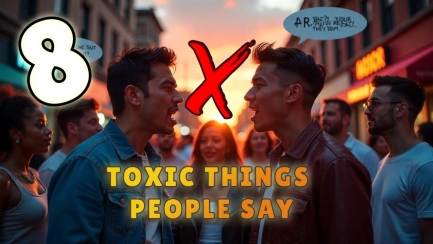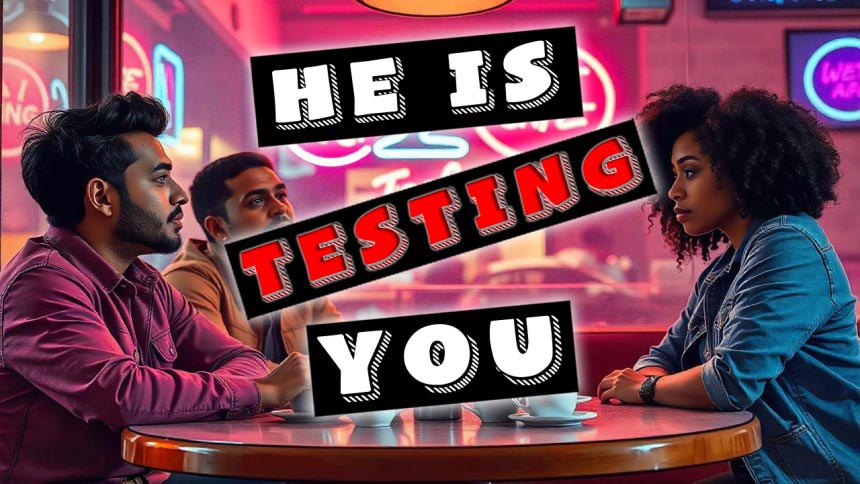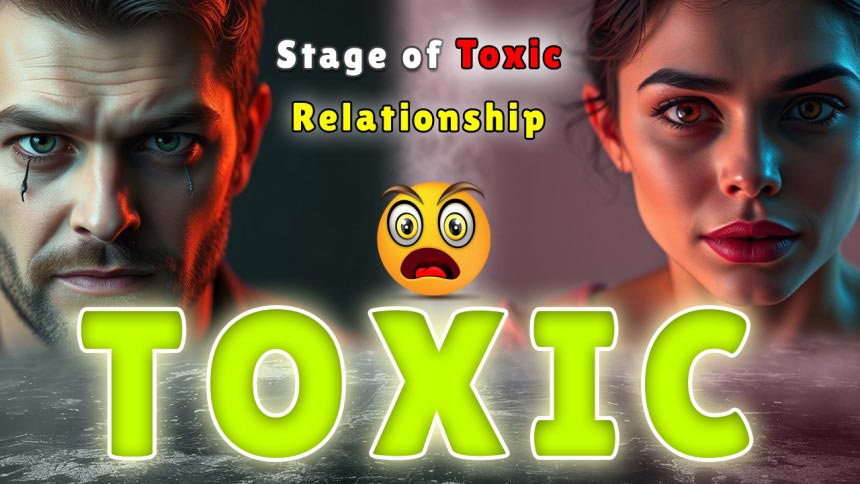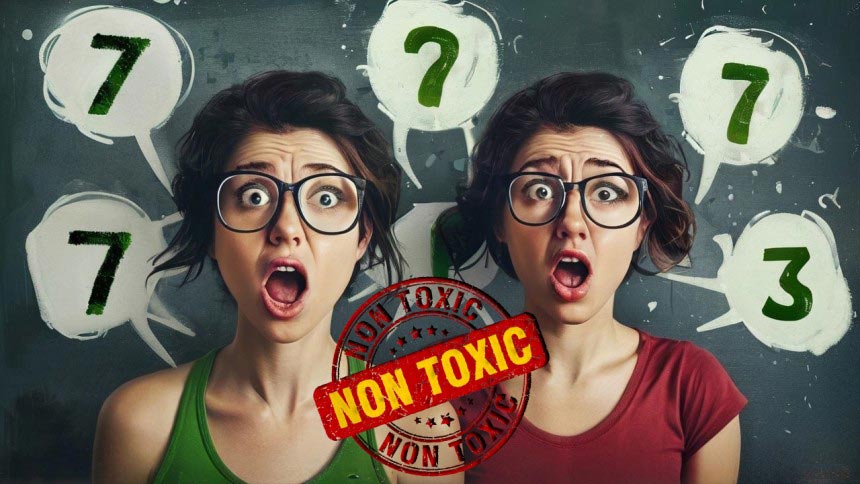
8 Toxic Things We Say Without Realizing
Being super close in a relationship, you can say whatever, whenever, and however. right?
Okay, straight up, being honest is great and lying is definitely not great. However, that honesty doesn't need to be cruel or toxic, which can happen with flippant comments. Worse, when we're angry, sometimes our need to fight back makes us say things that cut so deep that even after the fight is over, the damage can't be fixed.
So to help you become more aware of how your words may affect others, we've gathered up eight common things people say that could poison relationships. Number one, you're too sensitive or calm down. When someone confides in you, they're taking a big chance by opening up. It's a scary gamble to let you in.
When your response is something like, just calm down or you're too sensitive, you effectively slam the door in their face. These phrases project the message that you're judging them and deeming their issue as unimportant. So now you've shut off listening. It implies that you couldn't be bothered to help them or care about how they feel since you don't feel the same way about the subject.
Showing an interest, like saying, I can see that this hurts you, or even something that invites further understanding or explanation goes a long way to making the other person feel heard and understood. Number two. Just forget it. Or, whatever. Phrases like these shut down communication. The other person feels like you don't trust them, or you don't see them as important enough to share with.
They're confused and they can't read your mind. Improve communication by being more descriptive and honest with why you don't feel like talking. For example, you could try saying that you don't feel like they're listening to you, or that you're feeling at your limit and can't continue talking about it right now.
Number three, I'm done. Phrases like this one threaten the end of the relationship. Like, maybe we should just break up then. These kinds of statements unequivocally confirm that you feel throwing the other person away is a better choice than dealing with the issue at hand. This phrase is often used as a form of manipulation because of the devastating hurt of being treated like a disposable.
They're presented by toxic people as a negotiating tool. But really, this is outright bullying. A better approach would be to take time to cool off before making decisions. And if it turns out that you're no longer compatible with each other, it comes from a place of understanding, not impulsive anger.
Number four. I'm sure it's not that bad, or you'll get over it. You might think that saying this is helping the other person realize things can get better, and that they have no need to be fearful. But what is really being communicated is your emotions are invalid. These statements scream, I don't believe you, you're wasting my time, so stop talking.
Even if the person does get over it eventually. At this time, they're suffering. Hearing something like this just tells them that you don't care enough about them to listen and you want them to stop bugging you. If this isn't the message you're trying to send and you really do want to help, you could try using more inviting language.
Examples could be, that sounds hard, or we can get through this together. Or even, I can see why you'd feel, and encouraging them to help you understand. Number 5. You're just like your, insert relative here. Parents, siblings, aunts, or uncles, this phrase is particularly insulting because of its ambiguity. If it's said during a time of disagreement, it strongly implies that you're referring to a really crappy trait in that relative or family member.
Yeah, thems is fightin words. You're using the information this person has confided in you about their family and weaponizing it against them. So, maybe tailor the statement so it's not a blanket easy to misunderstand statement by stating the specific behavior and focusing on that, not inadvertently insulting the whole family line.
Number six. You're crazy. We mean when this is said in response to an upset or hurt being communicated, not when you're laughing with them about some daring stunt that was pulled at a party. If this person shares something upsetting like a suspected stalker or a racist co worker, if you say you're crazy or that's so not true you're nuts, you're very possibly participating in gaslighting.
You're telling this person that they're incapable of evaluating their own reality And you think they're a waste of time. It makes even the most stable people feel a shot of insecurity. It's a sign of utter disrespect for them as a person. We're sure you're not trying to destabilize anyone. If the situation is just that alien to you, you can try to invite them to explain further.
Like, I haven't been in a similar situation. Can you explain? Number 7. Not saying anything or giving the silent treatment. For Stonewalling, icing someone out, giving the silent treatment, they are all common reactive responses for those with avoidant attachment styles. It's shutting someone out to protect yourself from the vulnerability of sharing emotion.
Meanwhile, the other person feels like they've been slammed into that wall when they'd been previously told that they can't. There was a doorway. They feel rejected and betrayed. Even just a small, sincere statement, like, I need to think clearly, but I need some time first, or it's too much right now, but I hear you and we'll get back to this, will both give you the cool off period necessary and prevent a massive amount of damage.
And number eight, you never, or you always. We can't help it. We're gonna say it. Only a Sith deals in absolutes. Thank you, Obi Wan. Admit it. You don't want to be a Darth anything. So try to avoid the all or nothing statements like you never or you always. These generalizations put the other person on the defensive.
It implies anything good they've done in the relationship has been taken for granted, dismissed, and invalidated. They see you choosing to mischaracterize them by having this singular negative behavior stain everything the same shade. Focusing on the particular behavior being discussed will help to avoid the nevers and always.
In trying to express a trend that frustrates you, communicate the trend, not default to the generalization. Like it or not, we don't get to edit and cut out the rough bits in a relationship like a film strip or digital file. We stumble, we make mistakes, and we misspeak. The great thing about being human, though, is that we have the capacity to be self aware, learn, and evolve in these complex situations like relationships.
This lets us enrich our lives and become better than we could have possibly imagined. Do you recognize any of these phrases? What have you noticed when they were used? How did you feel if any were said to you? We look forward to your discussion and comments. Also, feel free to hit that like button and catch you next time and thanks for watching



